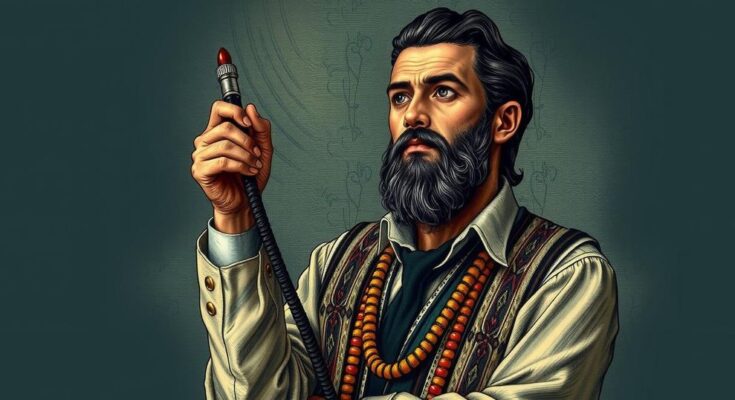Yamandú Orsi has won the 2023 Uruguay presidential election, defeating Álvaro Delgado by over three points. Orsi, a former history teacher and protégé of José Mujica, aims for a reconciliatory presidency focused on dialogue and economic stability. The Broad Front has regained influence in the Senate but lacks a majority in the Chamber of Representatives, representing a moderate political trend distinct from other regions in the Americas.
Yamandú Orsi, a leftist former history teacher, has emerged victorious in the recent presidential elections in Uruguay. In a closely watched run-off election, Orsi defeated Álvaro Delgado of the conservative coalition by over three percentage points. Delgado acknowledged his loss and extended his congratulations to Orsi and the Broad Front coalition, which was in power prior to the five-year conservative administration. Orsi, who is 57 years old, has garnered attention as a protégé of former President José Mujica, known for his simple lifestyle and appeal to the Uruguayan populace.
Hailing from a modest rural background, Orsi’s ascent from a history teacher to mayor of Canelones reflects his deep engagement in local politics. During his tenure as mayor, he facilitated Google’s decision to establish a significant data center in the region, further boosting the area’s economic prospects. In his campaign, Orsi projected a business-friendly agenda, emphasizing the importance of not imposing tax increases that could hinder investment.
Upon taking office, Orsi intends to represent all citizens of Uruguay, aiming for a reconciliation all across the political spectrum. He highlighted the need for a national dialogue, pledging to listen to those on opposing sides. Outgoing President Luis Lacalle Pou assured cooperation with Orsi for a seamless transition period prior to the latter’s inauguration set for March 1 of the following year. Although the Broad Front has regained majority status in the Senate, it will not command a majority in the Chamber of Representatives. Notably, Uruguayan elections showcased a shift away from the pronounced polarization evident in other nations in the Americas, presenting a moderate political landscape.
In 2023, Uruguay experienced a pivotal presidential election marked by the return of the Broad Front, a leftist coalition that dominated the country from 2005 until 2020. This election was particularly significant as the outgoing President, Luis Lacalle Pou, was constitutionally prohibited from seeking re-election. Yamandú Orsi’s victory symbolizes a shifting political landscape, departing from the more extreme divisions noted in surrounding countries like Argentina and Brazil. Orsi’s background as a humble history teacher and politician resonates with many voters, reflecting a broader trend toward pragmatic and moderate governance.
The victory of Yamandú Orsi in the Uruguayan presidential election represents a reversion to leftist governance after a conservative tenure. His leadership style promises inclusivity and economic pragmatism, as evidenced by his commitment to dialogue and national unity. As he prepares to assume office on March 1, 2024, the future of Uruguay under his administration is poised for significant developments amid a moderately supportive Senate and a divided Chamber of Representatives.
Original Source: www.bbc.com




